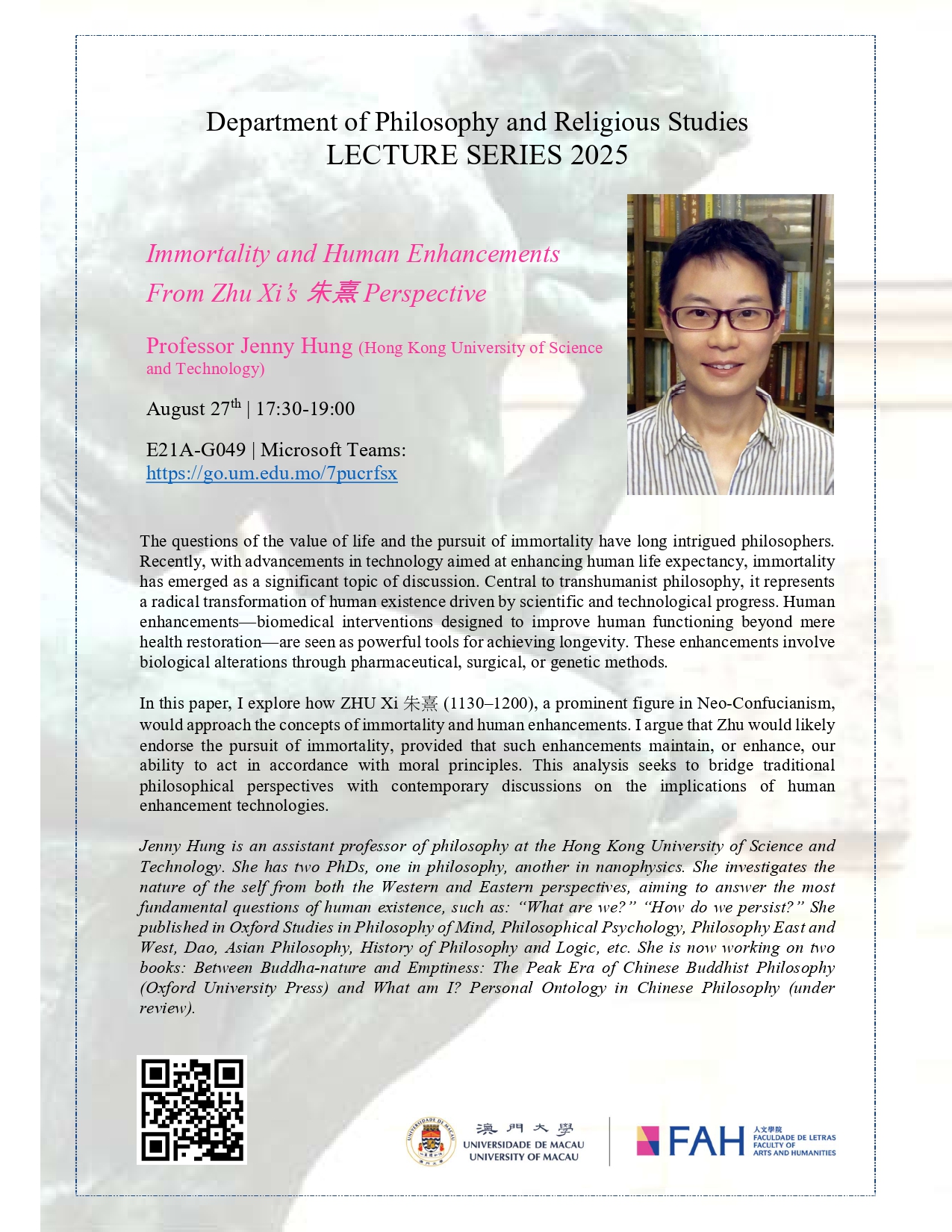

FAH/DPHIL Lecture Series – “Immortality and Human Enhancements From Zhu Xi’s 朱熹 Perspective” by Prof. Jenny Hung, Hong Kong University of Science and Technology, Hong Kong
2025-08-27 @ 5:30 pm ~ 7:00 pm
Microsoft Teams: https://go.um.edu.mo/7pucrfsx
Abstract
The questions of the value of life and the pursuit of immortality have long intrigued philosophers. Recently, with advancements in technology aimed at enhancing human life expectancy, immortality has emerged as a significant topic of discussion. Central to transhumanist philosophy, it represents a radical transformation of human existence driven by scientific and technological progress. Human enhancements—biomedical interventions designed to improve human functioning beyond mere health restoration—are seen as powerful tools for achieving longevity. These enhancements involve biological alterations through pharmaceutical, surgical, or genetic methods.
In this paper, I explore how ZHU Xi 朱熹 (1130–1200), a prominent figure in Neo-Confucianism, would approach the concepts of immortality and human enhancements. I argue that Zhu would likely endorse the pursuit of immortality, provided that such enhancements maintain, or enhance, our ability to act in accordance with moral principles. This analysis seeks to bridge traditional philosophical perspectives with contemporary discussions on the implications of human enhancement technologies.
Bio
Jenny Hung is an assistant professor of philosophy at the Hong Kong University of Science and Technology. She has two PhDs, one in philosophy, another in nanophysics. She investigates the nature of the self from both the Western and Eastern perspectives, aiming to answer the most fundamental questions of human existence, such as: “What are we?” “How do we persist?” She published in Oxford Studies in Philosophy of Mind, Philosophical Psychology, Philosophy East and West, Dao, Asian Philosophy, History of Philosophy and Logic, etc. She is now working on two books: Between Buddha-nature and Emptiness: The Peak Era of Chinese Buddhist Philosophy (Oxford University Press) and What am I? Personal Ontology in Chinese Philosophy (under review).

